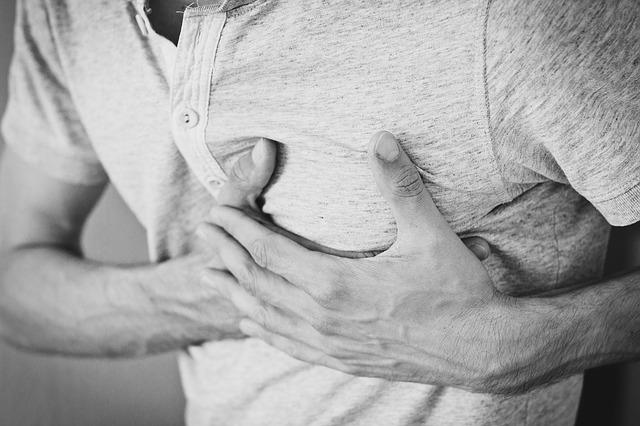10 Signs of Heart Disease


The heart is a pump of the body. It serves to deliver blood supply to the whole organs. It is located in the chest on the left side.
It received de-oxygenated blood from the organs and after oxygenation supplied back to various tissues and organs. Therefore any defects in the cardiac system can affect the whole body.
Heart disease can include angina, MI, heart failure, stroke, arrhythmia, etc... These coronary heart diseases have particular signs and symptoms.
All heart diseases share some common clinical features. This article will guide you to give you awareness about the 10 common signs of heart disease.
Cardiovascular disease is the leading cause of death globally. There is a strong correlation between cardiovascular disease and diabetes.
It has been noticed that people with cardiovascular disease have a high chance of impotency. It is necessary to adopt a healthy weight to overcome the risk factors of heart disease.
Following are the risk factors for heart disease
High blood pressure
Peripheral artery disease
Family history of heart disease
High cholesterol
Plaque formation in coronary arteries
Family history of high cholesterol
Chest pain is an alarming sign of heart disease. It arises from the heart, radiating to the left hand, shoulder, and chin. Chest Pain is severe in intensity for a short period and then subsides.
The high cholesterol and extra fats accumulated in the vessels of the heart block the arteries and decrease blood flow to the heart muscle, as a result, causing chest pain.
This blockage of vessels results in severe chest discomfort and pressure on the left side of the chest. The pain may occur when you are at rest or under exertion.
If you feel repeated attacks of such type, then you should consult a cardiologist for further evaluation. If you are having chest pain or difficulty breathing, It is a medical emergency and needs immediate attention.

Shortness of Breath The heart collects de-oxygenated blood from the peripheral tissues of the body and pumps that blood to the lungs for oxygenation. In the lungs, the exchange of carbon dioxide and oxygen takes place, and the oxygenated blood is sent back towards the heat.
In presence of heart disease, this pumping system becomes impaired and the oxygenated blood to the tissues is diminished.
The tissue and organ require oxygenated blood for their function, therefore the lungs start contraction and relaxation at a faster rate to take more oxygen from the external environment and meet the body's demand.
The rate at which the heart contacts to supply blood to the organs in a minute is called heart rate. Normally, it is 72 times in a minute. The heart rate is controlled by the sympathetic and parasympathetic nervous systems.
When there is heart failure, the body received less amount of blood and demands more blood from the heart.
For this reason, the sympathetic and parasympathetic nervous systems take action and send messages to the heart to contract at a faster rate. The heart rate speeds up, and blood flow to the organs is increased. The heart beats over 100 times per minute.
This irregular heartbeat is also called tachycardia.
Oedema is swelling of the peripheral tissues most commonly involving your feet. It occurs due to the accumulation of fluid in the tissue. In congenital heart failure, the heart becomes unable to receive complete blood from the tissue. Oedema is most commonly observed in the feet in the form of swollen ankles.
Therefore the blood remains in the blood vessels, and the fluid that comes out of the vessels causes oedema. Oedema increases the chance of infections in the affected tissues. Oedema has also caused by kidney failure and liver diseases.
If you feel persistent swelling and puffiness in your legs, then it should be evaluated to measure the cause of the problem.
Persistent Cough occurs in heart disease patients. Fluids accumulate in the lungs, which causes chronic infection of the lungs. The cough may result due to fluid present in the lungs. The cough may be dry or with sputum.
A cough with sputum is a signal of a more severe condition. Some people have also experienced blood in their sputum. A cough with sputum is also called a productive cough. The additional fluid in the lungs may cause tuberculosis and chronic obstructive pulmonary disease.
Dizziness is a condition in which you feel unsteady and think that your surrounding is revolving. Dizziness happens when there is a decreased blood flow towards the brain. Heart disease reduces the body flow into the brain which results in dizziness.
Along with dizziness, you may feel a slight headache when the blood in the brain is diminished. It can be relieved by directing the blood flow toward the brain.
If such situations happen, you should lay down in a supine position by slightly elevating your legs above the head.
As the body does not get a sufficient amount of blood, muscle and bones become weak as a result extreme tiredness and fatigue occur. The bone can't obtain an adequate amount of minerals from the blood and become prone to fracture. Extreme tiredness and fatigue extremely affect daily routine activities.
Skin is the outermost cover of the body. Its normal colour is dark brown or light pale due to the presence of oxygenated blood in the skin vessels.
In the case of heart diseases, deoxygenated blood is supplied to the skin which affects the colour of the skin and results in blue-coloured skin.
Apart from the colour of the skin, the temperature of the skin also changes. The periphery of the patient feels cold.
Heart disease upsets the stomach of the patient. Cardiac patients may have episodes of nausea and vomiting. Nausea occurs as a common symptom in myocardial infarction patients. Along with nausea and vomiting, the hurt burn has also been seen in some cardiac patients.
Loss of appetite may also be found in heart disease. A study has shown that about 56% of cardiac diseases are associated with stomach pain.
In cardiac diseases, the heart does more work than normal patients to fulfil the body's requirements of blood. Therefore sweating occurs even with a little exertion. More than usual sweating on rest may be an alarming sign of heart disease.
1. High blood pressure
2. Jaw pain
3. Leg swelling
4. Patient feels dizzy
5. Cold sweat in lower extremities
6. Left arm pain
If you experience any of the warning signs, get help right away and take cardiovascular medicine.
To order a Heart Disease Risk Blood Test, click here.
For a full range of medications, visit our Welzo Online Pharmacy Page. For more details click here.










Plus get the inside scoop on our latest content and updates in our monthly newsletter.